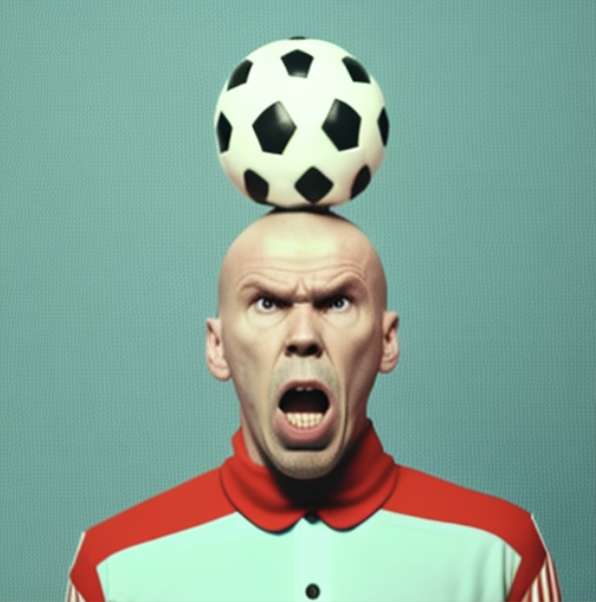Whenever a big technological change like AI comes along, people fear it will lead to lots of job losses.
It's claimed that a wide range of jobs are under threat ‐ coders, data analysts, graphic designers, journalists, technical writers, legal professionals, teachers, financial analysts, accountants, artists and musicians.
That's a lot of people.

There is a school of thought that predicts that AI will become more intelligent than humans, making us obsolete and eventually becoming our masters and telling us what to do.
Even Elon Musk recently called for a six-month pause on the development of more powerful AI systems until we develop and implement a set of shared safety protocols.
So we should be scared, right?
The good news is that history shows us that these fears tend to be overblown.
It's a bit like when the camera was invented. At the time there was a moral panic about the impact this was going to have on work and society. Yes, the invention of the camera meant that some jobs were lost but in the long run more jobs were created by this new technology.
Or as recently as 2013, when two Oxford academics produced a report suggesting that 47 per cent of total US employment was at risk from AI and automation. The list of doomed jobs included bus drivers and people working in fast food outlets. To date it hasn't happened and no-one is predicting it will happen any time soon.

AI robots were meant to be delivering parcels to our houses ‐ replacing the post office. In places like Milton Keynes this is already happening. On the other hand, when I walk through London, I have never seen so many guys on scooters delivering stuff.
History tells us that imagined apocalyptic scenarios tend not to happen.
So why are we worried?
So, if major new technologies usually lead to incremental change rather than thousands of people immediately being laid off, why do we worry about it so much?
Because we are human and we worry about stuff. It's a natural response.
It would be worrying if we weren't worried.
So what will happen?
What AI will definitely do is change things. It's a disruptor. It will change the way we work.
It's not in a position to replace us.
As anyone who has used an AI writing assistant will tell you, the results are impressive but the results also lack personality. (It's been compared to a confident 13 year old winging it without really understanding what they are talking about).
Dry content with no personality isn't the future of writing. We humans need more than that.
We want to read stuff that's written by humans ‐ words that have an angle, that make us laugh, make us cry. Words that make us feel human.
Also, AI is great at research but it also gets things wrong. You have to fact-check what it has written which can be pretty time-consuming.
Recently, an AI powered camera designed to automatically track the ball in a soccer game ended up tracking the bald head of a linesman instead. People watching the game on TV ended up just watching the linesman run up and down.
Let's face it ‐ it's an easy mistake to make. We've all done it.

In some areas AI is already having a major impact. For example, in detecting the early signs of breast cancer. AI has a proven track record showing it is excellent at detecting the warning signs. This doesn't mean that radiologists are out of work. It simply means that radiologists spend more of their time concentrating on patients who appear to be at a higher risk.
This is a perfect example of AI and humans working alongside each other and an illustration of what the future could look like.
On the other hand, it's likely that AI will take over shopping for groceries in the next few years. I've thought about it and I'm ok with that.

What about AI stealing people's work or ideas?
There are genuine concerns about how to protect artists and musicians from being imitated or copied by AI. There are serious ethical issues around this.
Also, AI makes it very easy and cheap to spread misinformation. The cost of misinformation is practically zero and it's becoming harder and harder to detect. This could be a real problem in the years ahead.
The other concern is that AI learns on the job ‐ over time it will get better and better at the things it is asked to do. No-one really knows where this is heading.
Conclusion
The bottom line is that AI is likely to be a collaborator rather than a competitor for people working in the creative industries.
The main reason that AI will not take your job is that AI can't do jobs.
A job is not the same thing as performing a task. Jobs require you to be good at lots of different things. AI can do certain things extremely well ‐ like create a painting of footballer Harry Kane in the style of Henry VIII's favourite painter Holbein

But it's not great being the multi-functioning, flexible, understanding, listening, responsive, empathetic humans that we are good at.
It's possible that AI will end up doing the boring bits of your job. Maybe it will free us all up to be more creative.
The future isn't AI versus humans. It's AI helping humans do what humans are best at.
by Julian Woodfield